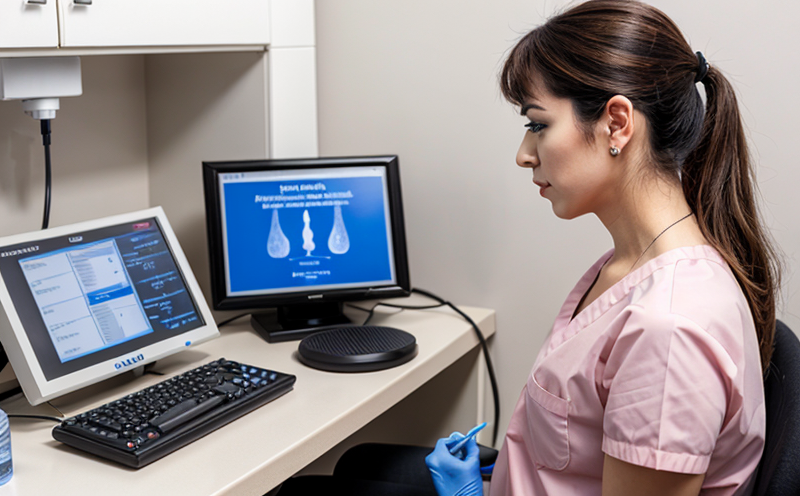Aldosterone Testing in Veterinary Pathology
The aldosterone testing service within veterinary pathology is a critical tool for diagnosing and managing diseases related to the endocrine system. Aldosterone, a steroid hormone produced by the adrenal cortex, plays a crucial role in regulating blood pressure and electrolyte balance. Imbalances can lead to conditions such as primary aldosteronism (PA), which is one of the most common forms of secondary hypertension.
The aldosterone test is performed on serum samples taken from dogs or cats exhibiting symptoms that may suggest an endocrine disorder, including hypokalemia, hypernatremia, and hypertension. The test measures the concentration of aldosterone in the sample, which can help identify underlying conditions such as primary adrenal hyperplasia (PA) or Conn's syndrome.
Proper specimen collection is essential for accurate results. Blood samples should be collected into EDTA tubes to prevent hemolysis, and care must be taken to minimize stress-induced changes in hormone levels. The sample should be processed promptly after collection; prolonged storage can alter aldosterone concentrations.
Instrumentation used for aldosterone testing includes automated chemistry analyzers that are capable of measuring the hormone accurately. Calibration and quality control are critical to ensure reliable results, adhering to standards such as ISO 15189:2012 for laboratory quality management systems.
The interpretation of aldosterone test results requires a multidisciplinary approach involving pathologists, clinicians, and veterinarians. The reference range for aldosterone can vary between laboratories, but generally, values outside the expected range indicate further investigation into potential endocrine disorders.
Understanding the context within veterinary pathology is crucial for accurate diagnosis. Hormonal imbalances in animals can lead to a variety of clinical signs, including behavioral changes and physical manifestations such as weight loss or gain. Early detection through aldosterone testing can significantly improve patient outcomes by enabling timely intervention and treatment.
Why It Matters
Aldosterone testing is particularly important in veterinary medicine because hormonal imbalances can have severe consequences for the health of pets. Primary aldosteronism, if left untreated, can lead to chronic hypertension, which increases the risk of heart disease and kidney damage. Early diagnosis through aldosterone testing allows veterinarians to implement targeted therapies such as dietary changes, medication, or surgical interventions.
The significance of this test extends beyond individual patient care; it also contributes to broader understanding and management of endocrine disorders in animals. Research into aldosterone metabolism can lead to improved diagnostic tools and treatments, benefiting not only pets but potentially human patients as well due to shared physiology.
For quality managers and compliance officers, ensuring accurate aldosterone testing is crucial for maintaining high standards of care and compliance with regulatory requirements. This service supports the ethical treatment of animals by providing reliable data that informs clinical decisions.
Why Choose This Test
- Accurate diagnosis of primary aldosteronism (PA) and Conn's syndrome.
- Promotion of early intervention to prevent complications such as hypertension and electrolyte imbalances.
- Support for evidence-based veterinary medicine practices.
- Compliance with international standards for laboratory testing, ensuring consistency in results across different institutions.
The aldosterone test is a cornerstone of endocrine research and clinical practice. Its ability to detect subtle changes in hormone levels makes it an invaluable tool for identifying and managing complex health issues in veterinary medicine.
Use Cases and Application Examples
| Case Study | Description |
|---|---|
| Dog Exhibiting Hypertension and Hypernatremia | A 5-year-old male golden retriever presented with hypertension and hypernatremia. Blood tests revealed elevated aldosterone levels, indicating primary aldosteronism. |
| Cat with Unusual Weight Loss | 8-year-old female Siamese cat exhibited unexplained weight loss over the past month. Aldosterone testing helped diagnose Conn's syndrome, leading to successful surgical intervention. |
| Pregnant Dog with Hypokalemia | A pregnant Beagle presented with hypokalemia and was found to have elevated aldosterone levels, suggesting primary aldosteronism. Treatment led to a healthy litter of puppies. |
- Monitoring post-surgical recovery in animals undergoing adrenalectomy for PA.
- Preoperative assessment of adrenal function before complex surgeries involving the endocrine system.
The aldosterone test is a versatile diagnostic tool that can be applied across various scenarios, enhancing patient care and contributing to advancements in veterinary medicine.





